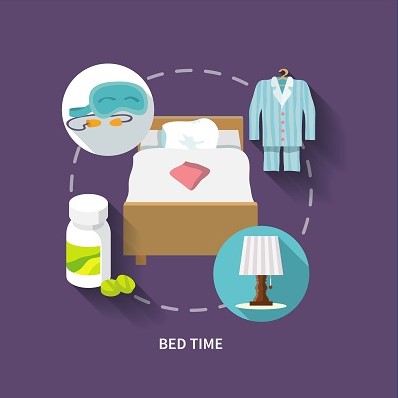 Sleep, according to Webster’s dictionary, is defined as “the natural periodic suspension of consciousness during which the powers of the body are restored.”
Sleep, according to Webster’s dictionary, is defined as “the natural periodic suspension of consciousness during which the powers of the body are restored.”
It is no secret that sleep is a crucial element to our survival, equally as important as food and water, however, not all periods of sleep are of the same caliber, and it is the caliber of our sleep that can make a determinable difference in how well we function when we are awake.
If a person’s sleep is interrupted frequently or if one simply doesn’t get an appropriate amount, the quality of rest received is diminished, and that will have a significantly negative impact on our ability to function and on our overall productivity when not sleeping.
Proper sleep has a distinct and direct correlation on our memory, learning, and ability to retain information, and getting into the habit of practicing sleep rituals absolutely can and will make a difference in how successfully we sleep.
Many sleep rituals involve routines and habits that should take place long before you go to bed, including getting into the habit of taking care of certain activities or responsibilities first thing in the morning, as opposed to just before going to bed.
Stressful tasks or conversations that require extra thought and attention, such as paying bills, having intense discussions with your spouse or significant other, or basically participating in any activity that is likely to raise your blood pressure or trigger the release of cortisol and other stress hormones should be saved for the first part of the day, not the last.
Basically, don’t do anything to get ramped up too close in proximity to the hour when you will try to wind down.
Similarly, another habit that is beneficial to our sleep quality is reserving the place where you sleep for sleep only, as opposed to using your bedroom also as an office or a TV room. If sleep is the only activity that your mind and body associate the bed with, then it will be easier to fall into a restful state when you do go to bed.
Additionally, the environmental factors of your sleep space, such as the lighting, temperature, and noise level, can all play major roles in affecting the quality of the sleep you receive. Keeping the bed room dark, quiet, and a few degrees cooler than the rest of the house will have a positive impact your ability to truly rest.
Some other factors that can affect your sleep are how recently you eat or consume alcohol prior to trying to go to sleep. Food and alcohol will metabolize at different rates and eating or drinking too recently prior going to bed can actually result in your sleep being interrupted right when your body is attempting to enter the “REM” (rapid eye movement) stage of your sleep and can interfere with your body’s ability to re-charge.
If you want to achieve your optimum productivity level throughout the day, then it is essential that you plan ahead for where, when, and how long you sleep.
Sleep rituals, such as the ones listed above, are simple, easy, and guaranteed ways to ensure that your mind and body have the best chance at rejuvenation overnight.
Rest is paramount to our overall wellbeing, and discovering, practicing, and implementing rituals that contribute to the quality of that rest are in turn paramount to our health, happiness and vitality.
Practicing these rituals (and exploring others that you may find work individually for you), and simply just paying attention, by putting effort toward receiving good, wholesome periods of rest will result in you feeling and doing your best when you are awake.






